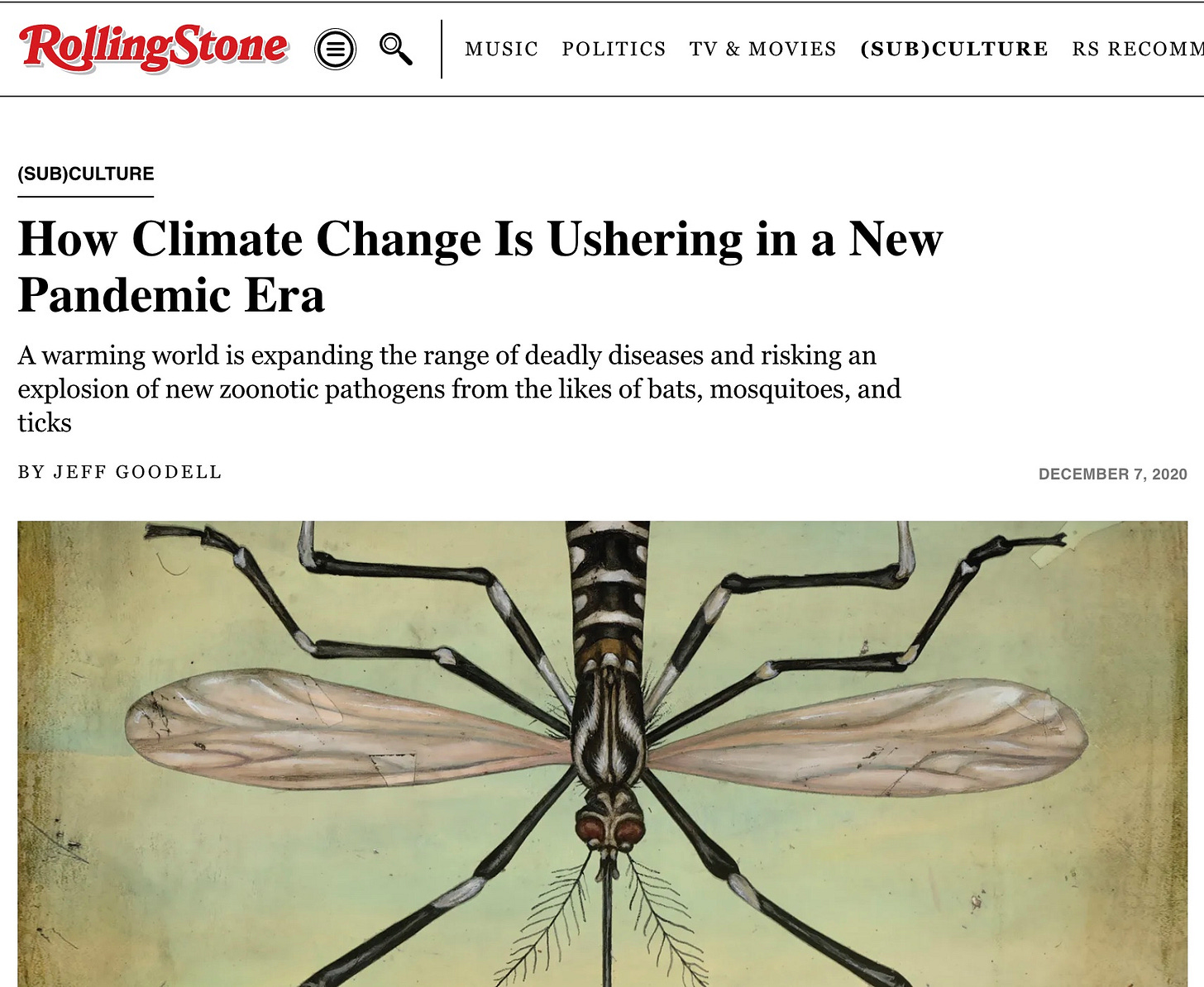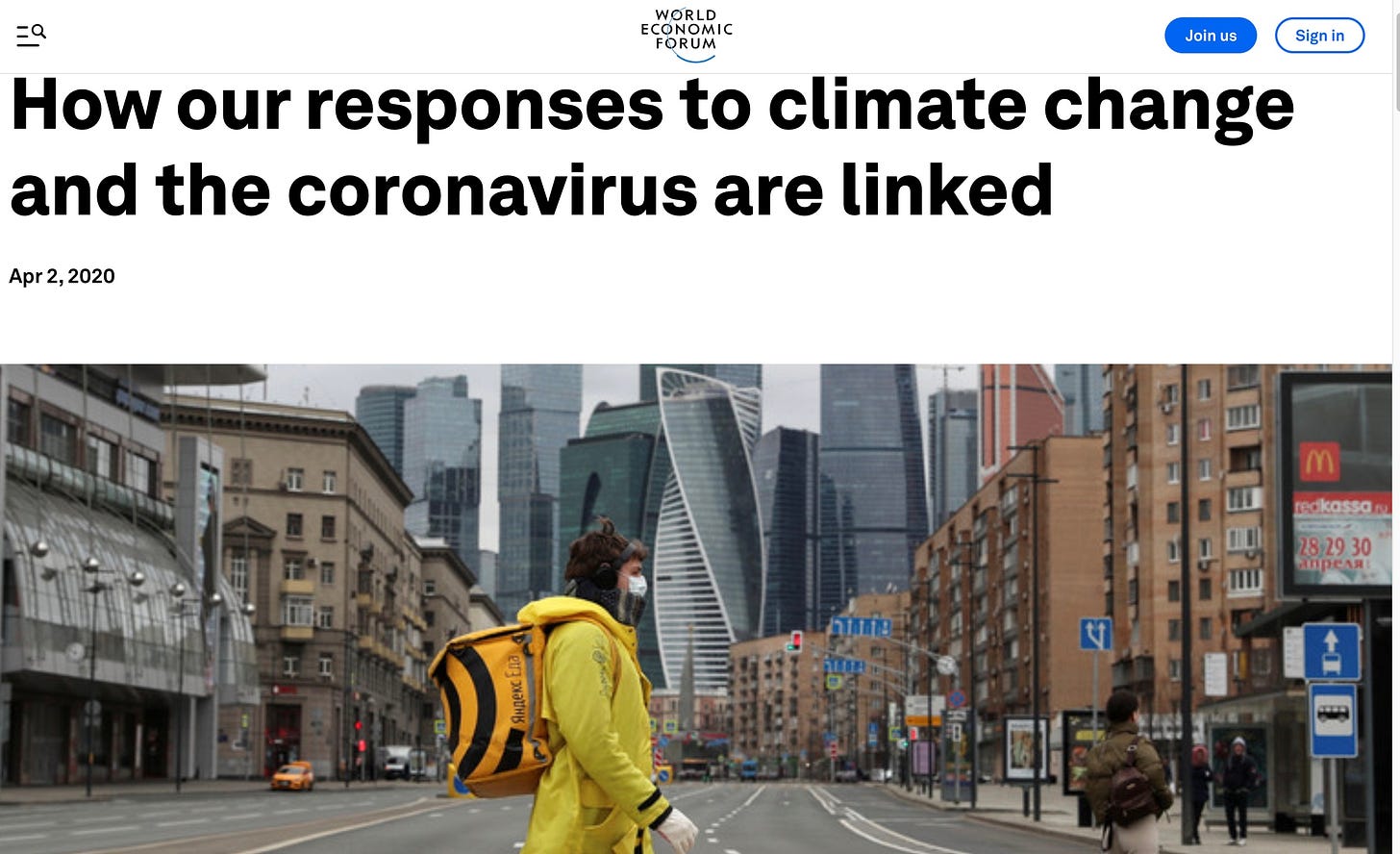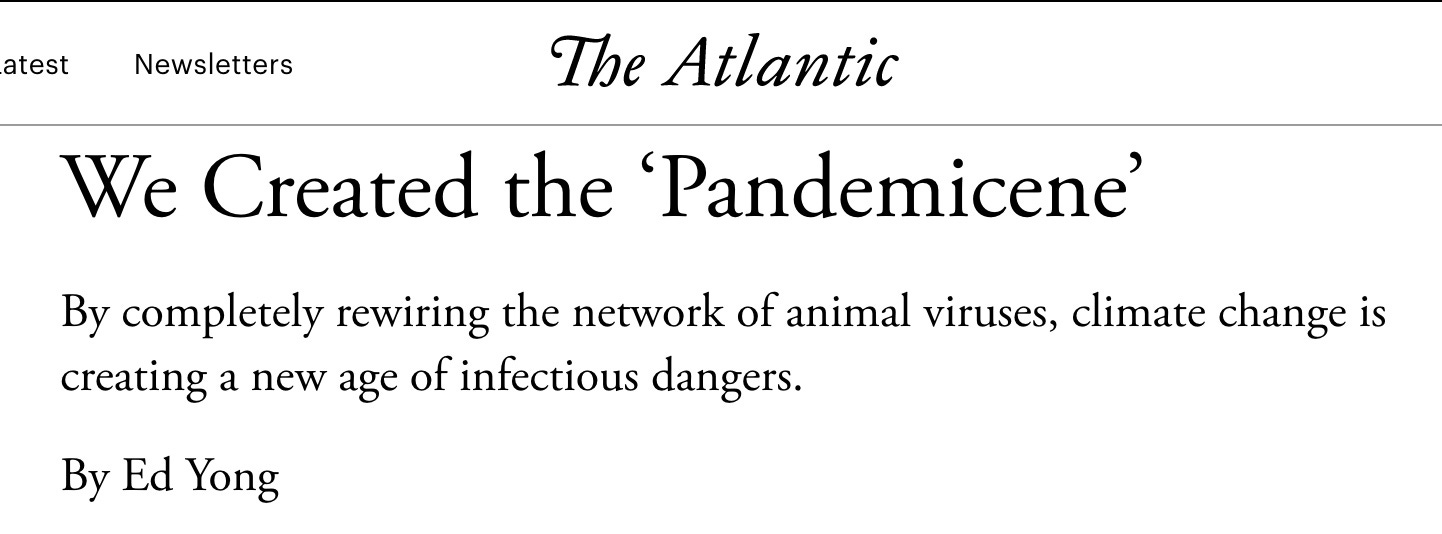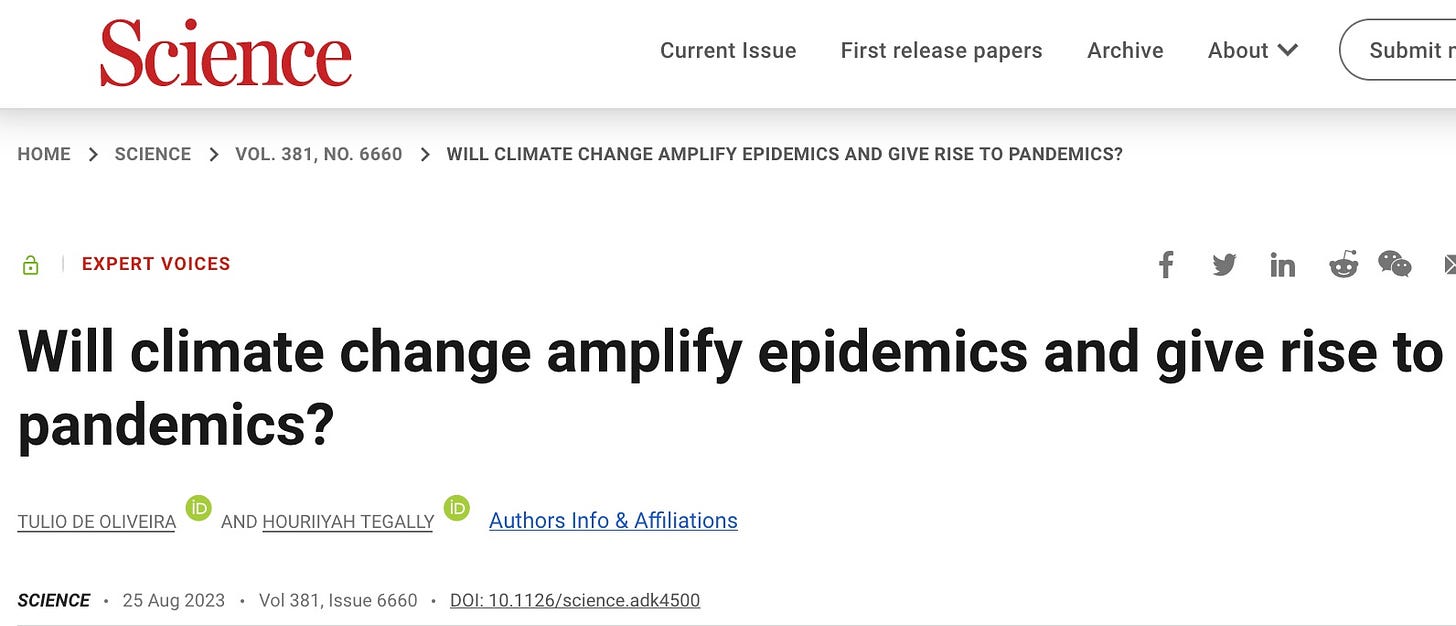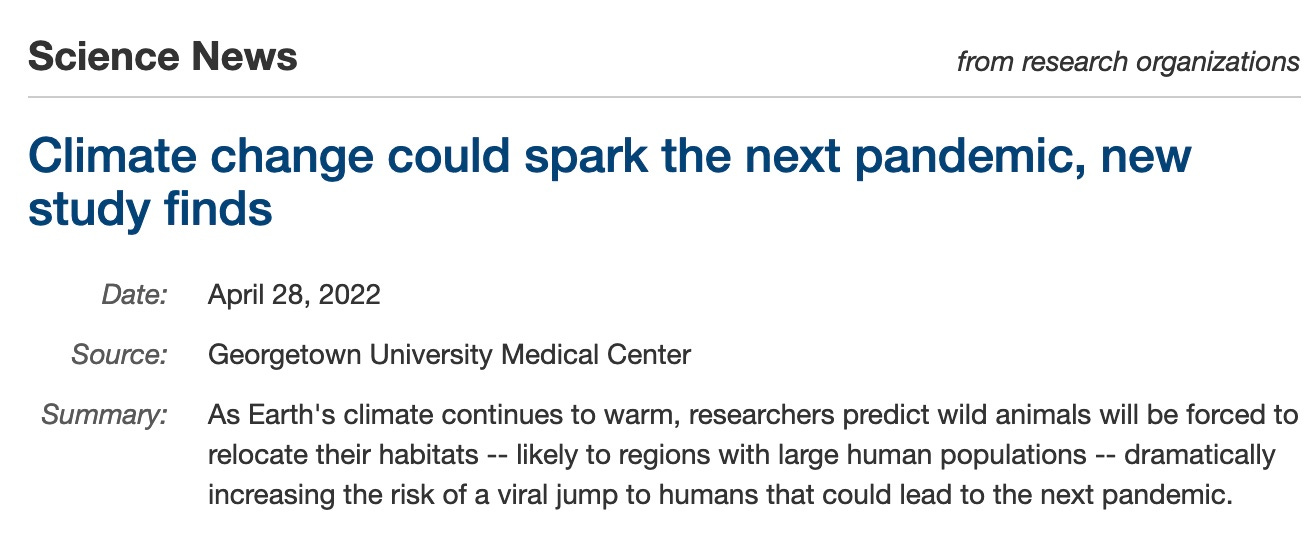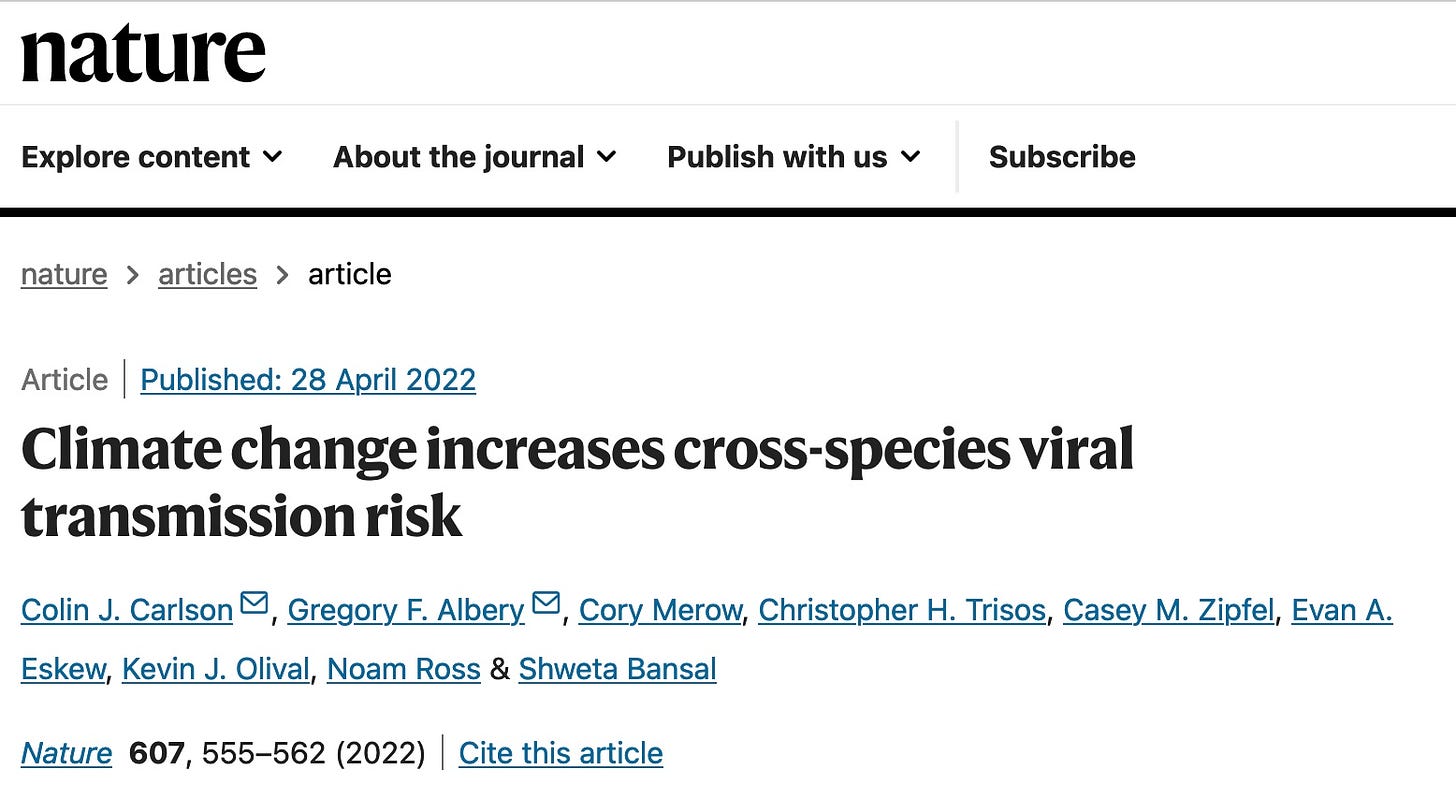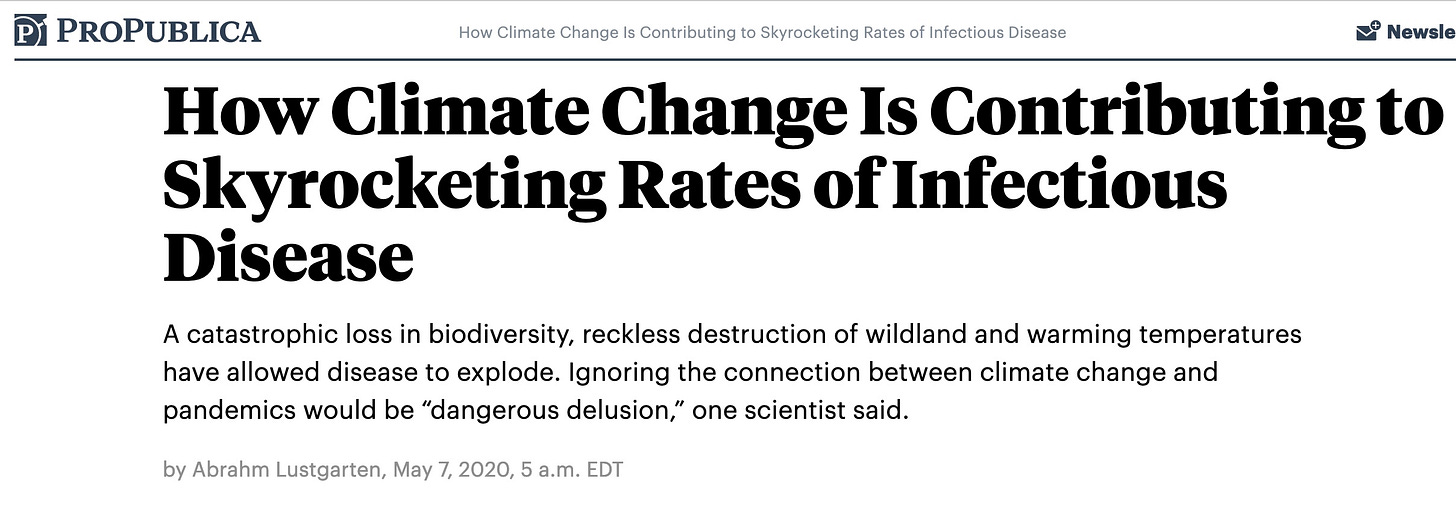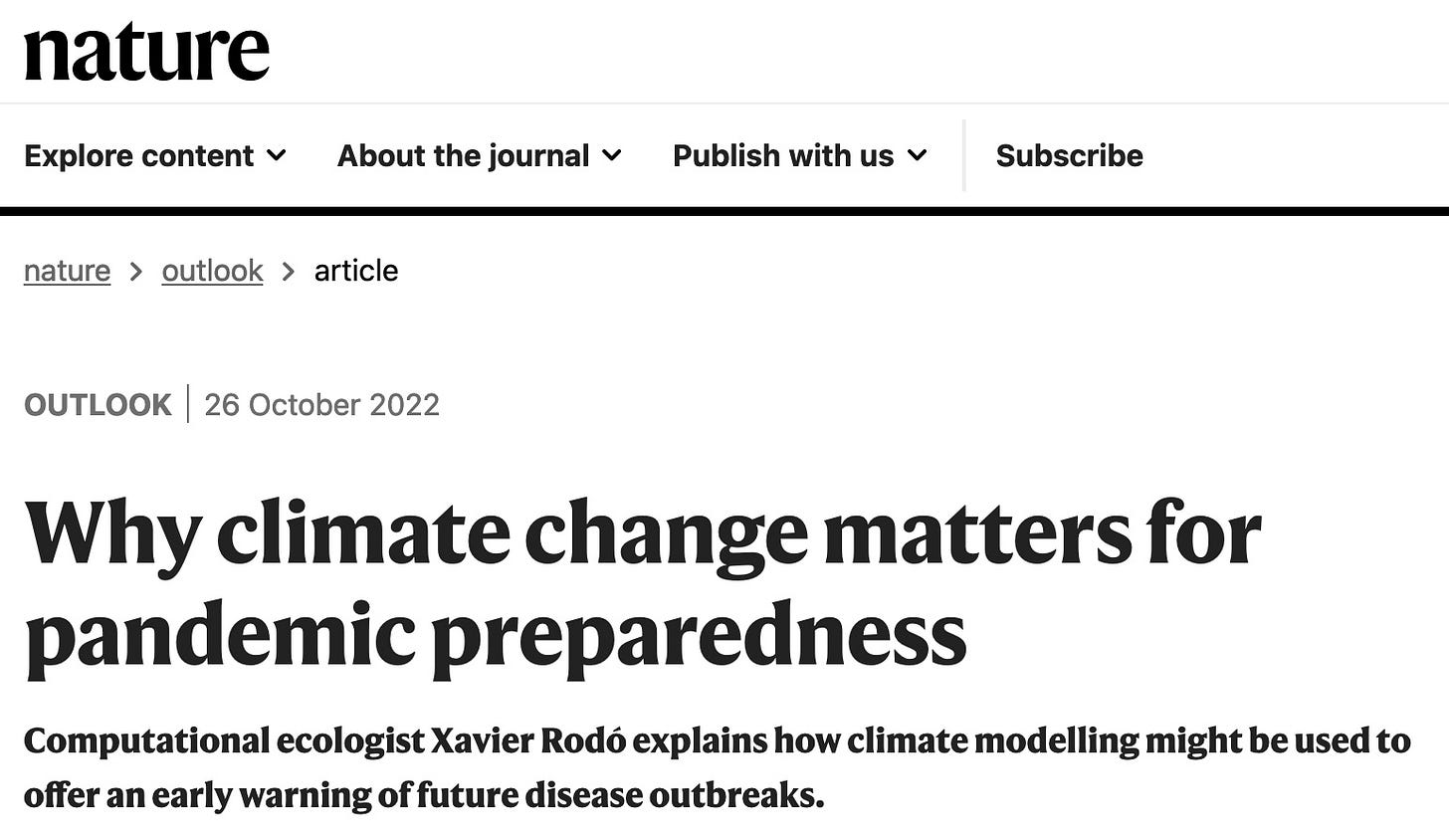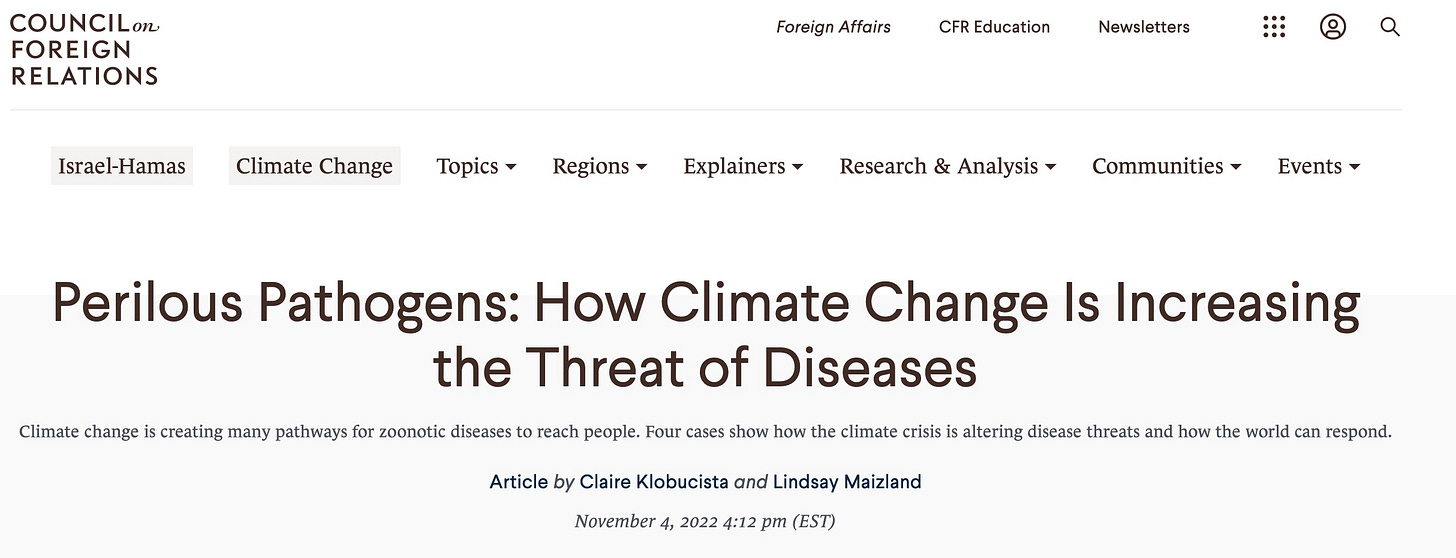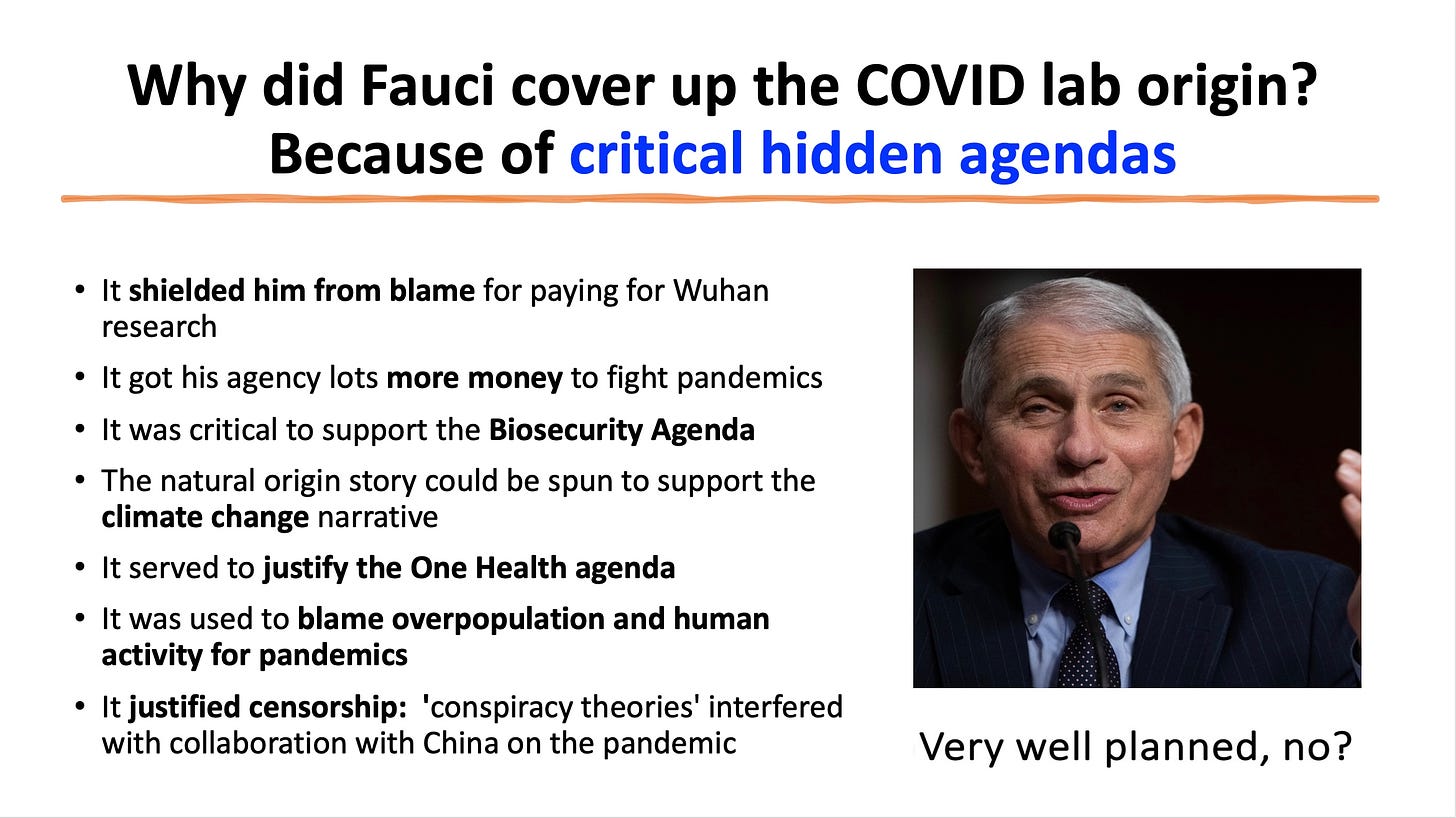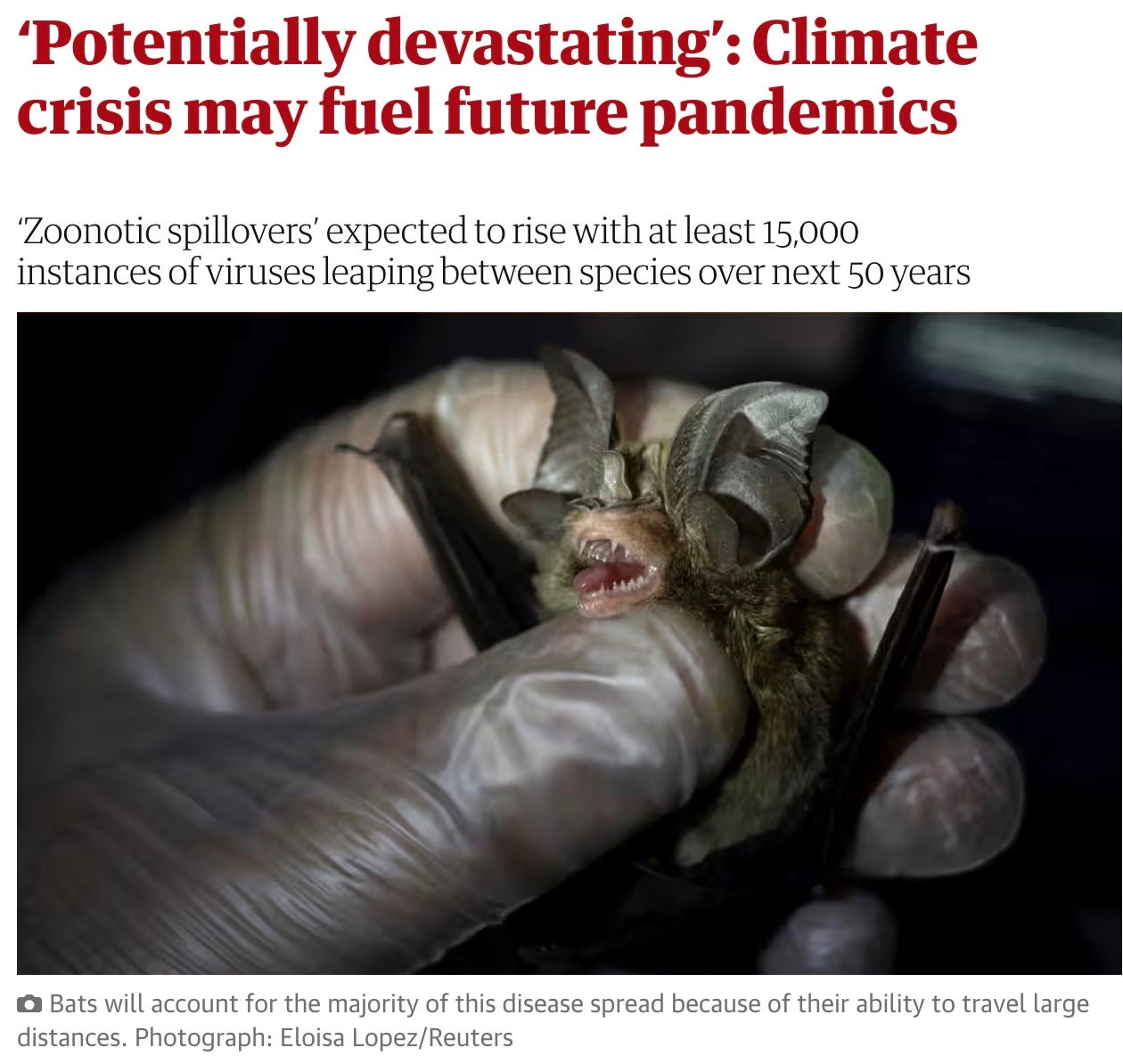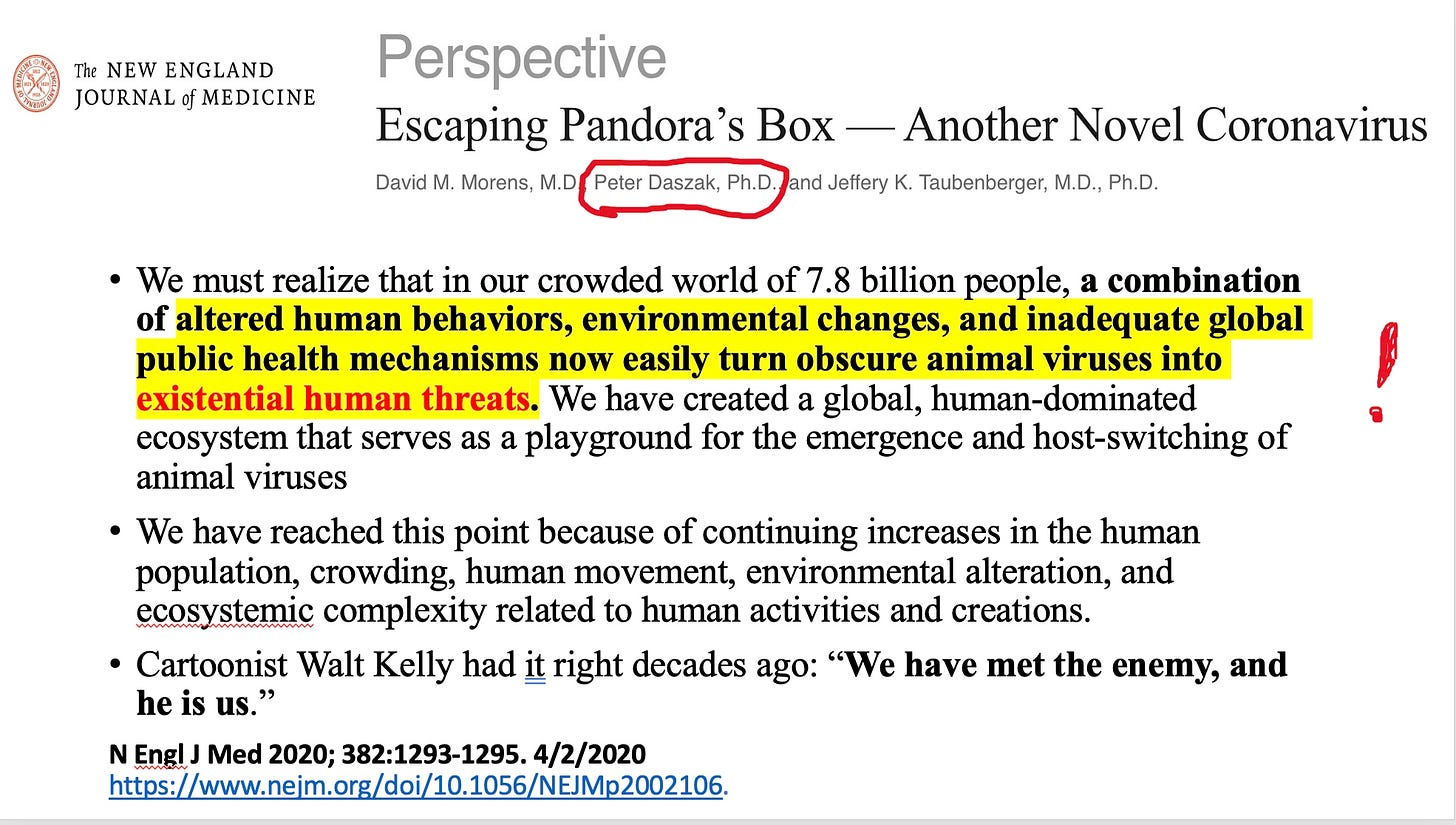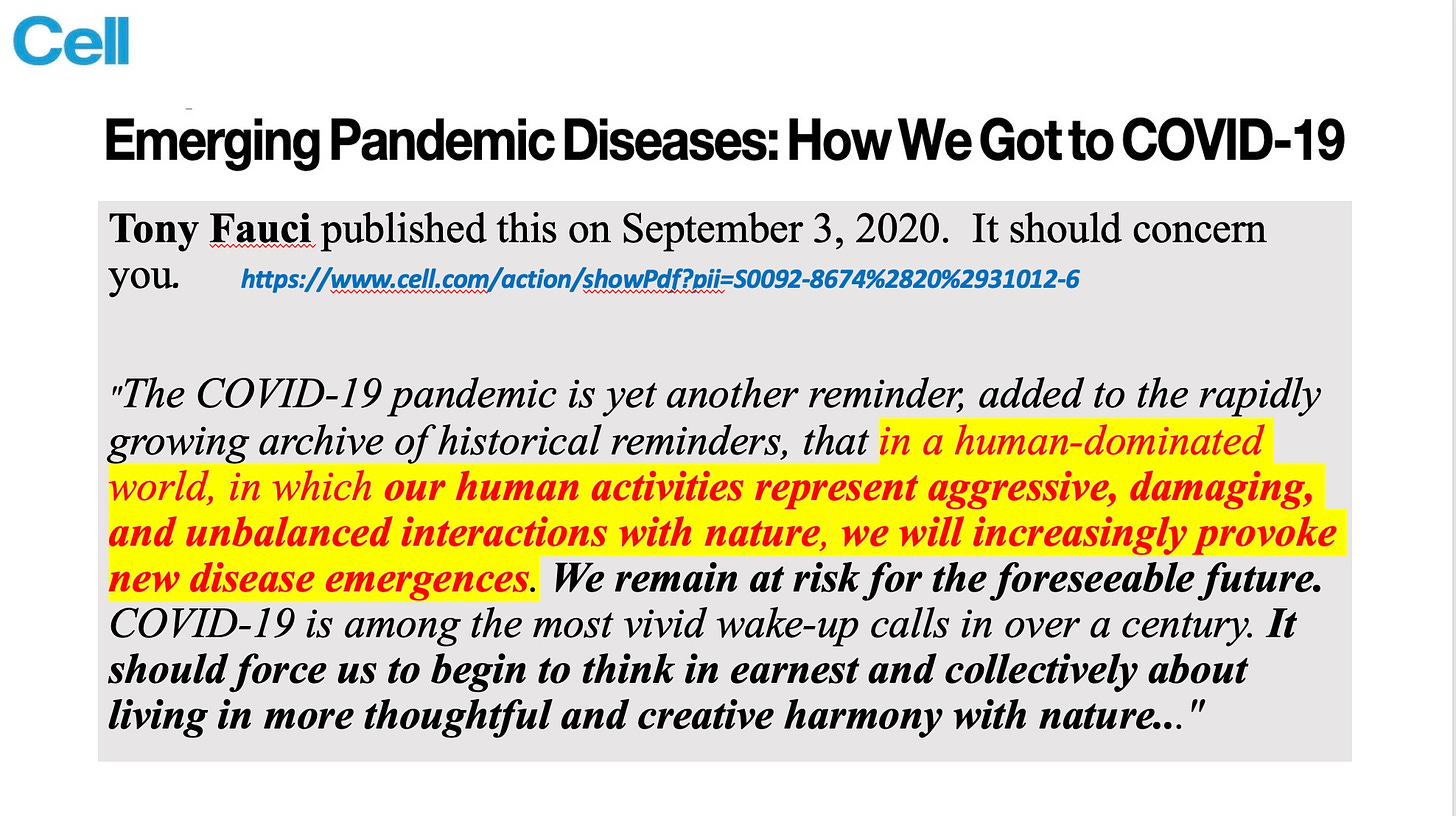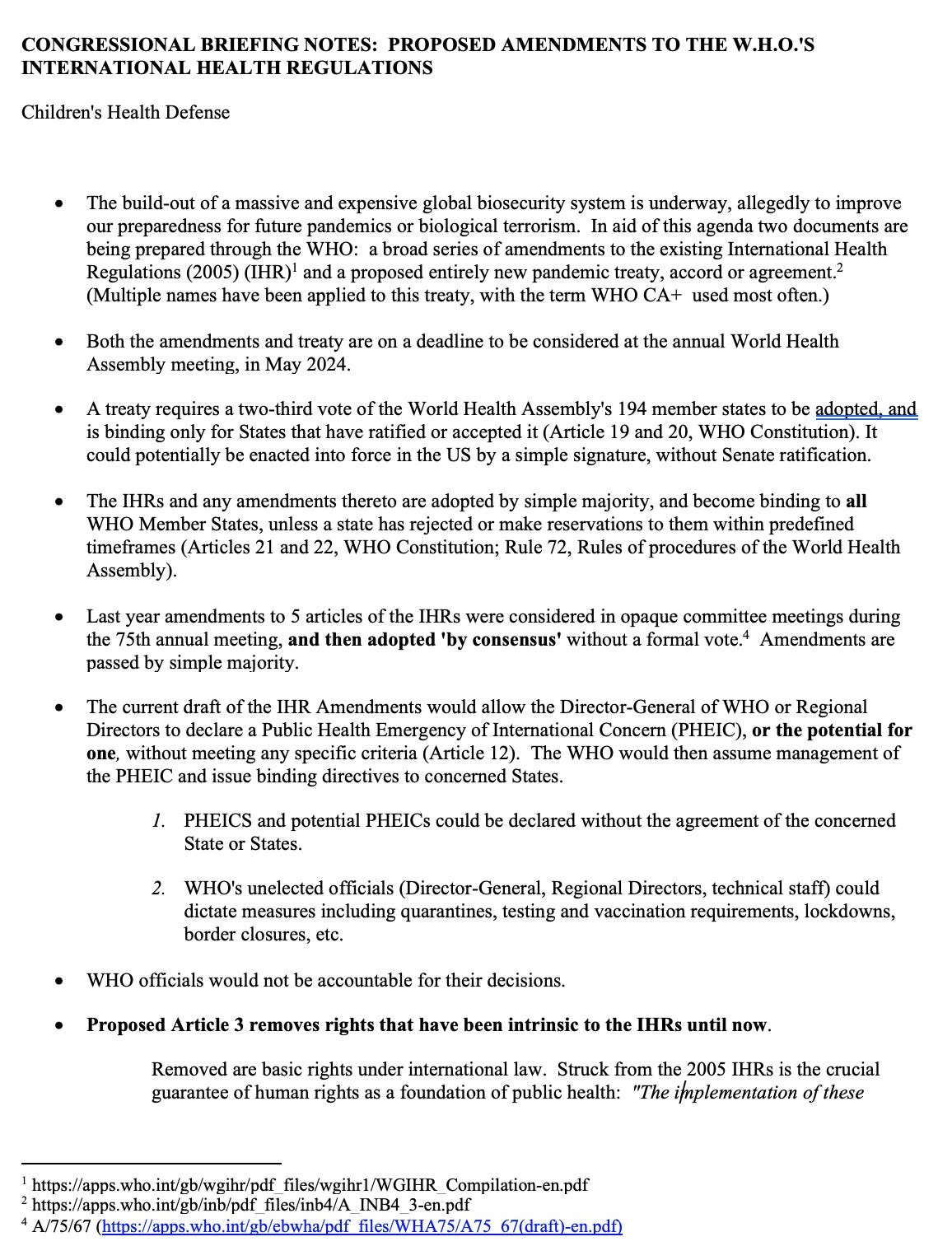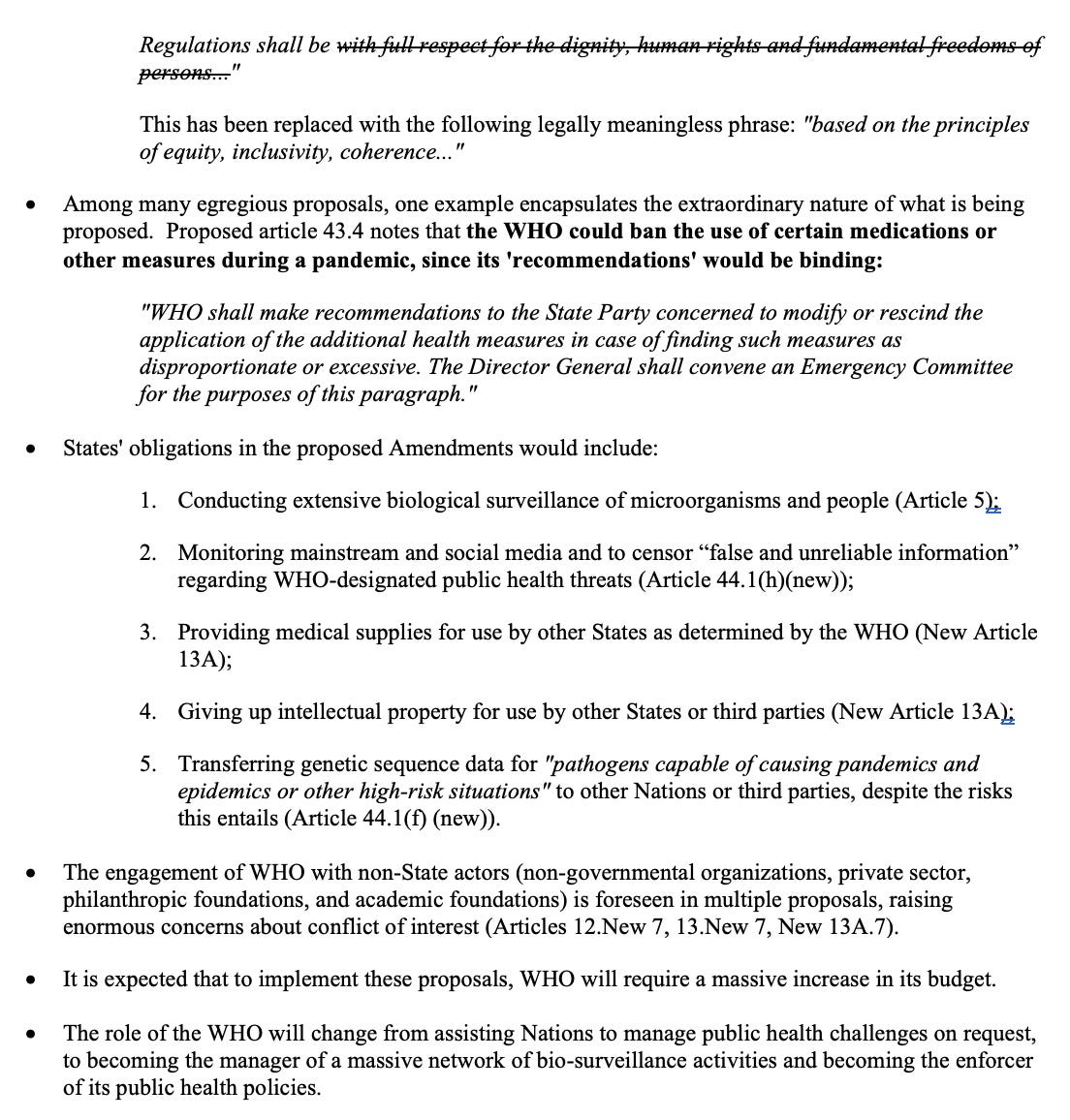This
version of the Treaty is very similar to the June 2 version, but I felt
an updated analysis was needed before the hearing on the WHO tomorrowMeryl Nass, MD
First,
it should be noted that the names used for this document change with
each draft, which is very confusing. The current draft omits the term
CA+, and is titled:
Advanced unedited version - 16 October 2023
This document is very similar to the June 2 "Bureau Draft" of the Treaty.
It
needs to be understood that this treaty is based on fantasy, as none of
its foundational assumptions is accurate. The Pandemic Treaty intends
to create a complicated managerial structure with a new WHO Secretariat
and Conference of the Parties to perform activities that have never been
shown to prevent or respond to pandemics effectively or provide any
other benefits. In fact, these efforts are most likely to increase
pandemics and encourage the use of hasty regulatory structures and
problematic, liability-waived drugs and vaccines produced too quickly.
All the Pandemic Treaty drafts so far rely on a set of incorrect assumptions. They include the following:
· The WHO is the directing and coordinating authority on international health.
·
International spread of disease demands the widest international
cooperation, ignoring the fact that international spread may be limited
to only a few countries and will demand a different level of response,
depending on the circumstances.
· Nations retain national
sovereignty through their ability to pass health laws, while they will
simultaneously be bound and accountable to obey the directives from the
WHO on health.
· We were unprepared for COVID and this caused
the pandemic's suffering, but now we know how to prepare for pandemics
and simply need a central authority to direct us.
· Lack of
equity led to failure to share drugs, vaccines, PPE--ignoring the fact
that no nation had sufficient PPE or tests early in the pandemic, and
that it was nations withholding generic drugs from their populations,
not lack of equity causing many treatment shortages.
·
Pandemics invariably arise at the animal-human interface, are natural in
origin, and the vaguely defined "One Health approach" can prevent or
detect them early.
· Increasing the capture and study of
"potential pandemic pathogens" can be done safely and provide useful
pandemic products, when neither has been true in the past.
·
Pharmaceutical manufacturers will agree to give up some intellectual
property rights. In fact, a Pharma manufacturers' association said this
week it would prefer no treaty to this one.[1]
·
The UN adopted a declaration on pandemic preparedness on September 20,
2023. In fact, 11 countries objected and the declaration was only
approved by the UN Secretary-General.
· Censorship of "infodemics" is legal and desirable.
·
Nations and the WHO must apply the "One Health approach," which
includes efforts related to climate change and sustainable development,
for health promotion.
· Health "coverage" (insurance) will provide the world's citizens access to a broad range of health care.
Here are some specific examples of what is wrong with the Treaty.
Article 3, #2. Sovereignty
"States
have, in accordance with the charter of the United Nations and the
general principles of international law, the sovereign right to
legislate and to implement legislation in pursuance of their health
policies."
This language fails to address the issue of the WHO assuming sovereignty for health matters over states through this treaty.
Article 3, #3. Equity
"Equity includes the unhindered, fair, equitable and timely access to safe, effective, quality and affordable pandemic – related products and services, information, pandemic – related technologies and social protection."
However,
Article 9, #2 (d) states that parties shall promote "infodemic
management," and infodemic is defined in Article 1(c) as false or
misleading information. Article 18, #1 instructs the Parties to "combat
false, misleading, misinformation or disinformation..." In earlier
drafts the WHO spelled out that only the WHO's public health narrative
would be allowed to spread.
Article 4, #3. Pandemic prevention and public health surveillance
"The
Parties shall cooperate with the support of the WHO Secretariat to
strengthen and maintain public health laboratory and diagnostic
capacities, especially with respect to the capacity to perform genetic
sequencing, data science to assess the risk of detected pathogens and to
safely handle samples containing pathogens and the use of related
digital tools."
While this language is more spare than in
previous drafts, it does direct nations to perform genetic sequencing of
potential pandemic pathogens (i.e., biological warfare agents) they
find and to safely handle them, which requires high containment (BSL3/4)
laboratories. Also in Article 4 is the need to "develop,
strengthen and maintain the capacity to (i) detect, identify and
characterize pathogens presenting significant risks..." indicating the directive for nations to perform surveillance to seek out such pathogens.
Article 6, #4. Preparedness, Readiness and Resilience
"The
Parties shall establish, building on existing arrangements as
appropriate, genomics, risk assessment, and laboratory networks in order
to conduct surveillance and sharing of emerging pathogens with pandemic potential, with such sharing pursuant to the terms and modalities established in Article 12."
Article 1 (h) defined "pathogen
with pandemic potential" as any pathogen that has been identified to
infect humans and that is potentially highly transmissible and capable
of wide, uncontrollable spread in human populations and highly virulent,
making it likely to cause significant morbidity and or mortality in
humans." Why does the WHO require nations to go out and find
potential pandemic pathogens (a.k.a. biological warfare agents) and
supply both samples and their sequences to the WHO, where they will be
shared with pharmaceutical companies, research centers and academic
institutions, as well as possible others and online?
Article 8, #3. Preparedness monitoring and functional reviews
"The
parties shall, building on existing tools, develop and implement an
inclusive, transparent, effective and efficient pandemic prevention,
preparedness and response monitoring and evaluation system."
Yet
4 different monitoring systems have been used to gauge nations'
readiness for pandemics and all 4 failed to predict how well they would
do when COVID appeared. There is no acknowledgement of the failures of
our assessment tools, nor discussion of whether there exist any useful
assessment tools.[2] [3]
And this begs the question why, if our means of assessing progress
against pandemics failed, do we think that similar efforts are likely to
be successful in future?
Article 10, #1 (d). Sustainable production
"The
Parties encourage entities, including manufacturers within their
respective jurisdictions, in particular those that receive significant
public financing, to grant, subject to any existing licensing
restrictions, on mutually agreed terms, non-exclusive royalty-free
licenses to any manufacturers, particularly from developing countries,
to use their intellectual property and other protected substances,
products, technology, know-how, information and knowledge used in the
process of pandemic – related product development and production, in
particular for pre- pandemic and pandemic diagnostics, vaccines and
therapeutics for use in agreed developing countries."
This and related sections are probably what make the pharma organization so upset with the Treaty.
Article 12, #4 (a) i (2) Access and benefit-sharing
"upload the genetic sequence of such WHO PABS (Pathogen Access and Benefits System) material to one or more publicly accessible databases of its choice, provided that the database has put in place an appropriate arrangement with respect to WHO PABS material."
There
is additional discussion about the sharing of pathogens and the need to
identify and upload their genetic sequences online where they will be
accessible. This could also be called proliferation of biological
weapons agents, which is generally considered a crime. In the US,
"Select Agents" are those designated to have pandemic potential, and the
select agent program[4]
is managed by CDC and USDA. For safety, CDC must give permission to
transfer select agents. Yet the select agent rules are ignored in this
WHO Treaty. And in an apparent effort to handwave over existing rules,
the drafts says in Article 12, #8,
"The
Parties shall ensure that such a system is consistent with, supportive
of, and does not run counter to, the objectives of the Convention on
Biological Diversity and the Nagoya Protocol thereto. The WHO PABS system will provide certainty and legal clarity to the providers and users of WHO PABS materials."
Article 13, #3 (e). Global Supply Chain and Logistics
"The
terms of the WHO SCL Network shall include: facilitating the
negotiation and agreement of advance purchase commitments and
procurement contracts for pandemic-related products."
Advance
purchase commitments are contracts that obligate nations to buy
products for pandemics in advance, sight unseen. Neither the
manufacturer nor the nation knows what is coming, but once WHO issues a
pandemic declaration, the contracts are activated and the US government
will have to buy what the manufacturer produces. The 2009 swine flu
pandemic provides a useful example. Advance purchase commitments led to
tens of $ billions in vaccine purchases in North America and Europe for
a flu that was less severe than normal. The GSK Pandemrix brand of
vaccine led to over 1300 cases of severe narcolepsy, primarily in
adolescents.[5] Rapid production of vaccines for which profits are guaranteed and liability is waived has never been a win for the consumer.
Article 14. Regulatory Strengthening
Nations
are to harmonize their regulatory requirements, expedite approvals and
authorizations and ensure the legal framework in place to support
emergency approvals. This incentivizes a race to the bottom of drug and
vaccine approval standards, particularly during emergencies.
[1] https://www.ifpma.org/news/innovative-pharmaceutical-industry-statement-on-draft-who-pandemic-treaty-we-need-to-preserve-what-went-well-and-address-what-went-wrong/ "As
the body representing the global innovative pharmaceutical industry in
official relations with the United Nations, IFPMA has issued the
following statement in response. IFPMA Director General, Thomas Cueni said on October 17, 2023:
"It
would be better to have no pandemic treaty than a bad pandemic treaty,
which the draft circulated to member states clearly represents."'
[2] WHO Report: Independent Oversight and Advisory Committee for the WHO Health Emergencies Programme.
Interim report on WHO’s response to COVID-19 January-April 2020.
https://www.who.int/publications/m/item/interim-report-on-who-s-response-to-covid---january---april-2020
"The
IOAC sees no clear relation between JEE scores and country preparedness
and response to COVID-19, suggesting that existing metrics for public
health preparedness and health care capacity do not reflect the full
range of variables that affect a country’s response during a severe
pandemic on a massive scale. The majority of countries appeared
ill-prepared and struggled to implement public health measures in
response to COVID-19. In the light of this pandemic, the IOAC
recommends that Member States and the WHO Secretariat 6 review the IHR
core capacities and existing tools and framework for national and
international preparedness, and consider whether they need to be
updated."
[3] https://www.ncbi.nlm.nih.gov/pmc/articles/PMC9111134/
[4] https://www.selectagents.gov/
[5] https://www.science.org/content/article/why-pandemic-flu-shot-caused-narcolepsy
